Updated for 2024
Big Cat Conservation isn’t a topic they teach you at school. If you want to learn how to work with these complex wild animals and preserving the endangered species of Africa, Asia, and Latin America, then this is an amazing opportunity to take control of your education and go into the field.
The term “big cat” refers to the four largest members of the Panthera genus: the tiger, lion, jaguar, and leopard. This definition has been expanded to include the snow leopard, puma, clouded leopard, Sunda clouded leopard, and cheetah, although these species do not roar like the four big cats. Big cats are “apex predators,” which means they are at the top of a food chain – no other animals hunt the big cat, except humans. And it’s because of human-animal conflict that the big cats are endangered. The primary threats to big cats are habitat destruction and poaching, both caused by people.
What You Can Do for Big Cats
An animal sanctuary, park, or reserve provides a refuge for these big cats to live out their lives in safety, but these facilities are expensive and difficult to maintain. They rely upon the assistance of researchers and volunteers to monitor and improve the health of the population, sustain the environment, and to educate the nearby community to alleviate the human threat. For example, GoEco’s wildlife sanctuary in Zimbabwe rescues and rehabs big cats such as lions and leopards, amongst other wildlife, with the help of volunteers.
When you travel abroad on a volunteer conservation program – to the rainforests of Costa Rica, to the savannas of Africa, or the jungles of India and Malaysia – you’ll work with a team of researchers who are monitoring current big cat populations. You can help them as they develop solutions to save habitats by educating communities, eradicating poaching, and enforcing sustainable practices. You’ll learn how to track animals in the wild, using sophisticated monitoring equipment and cameras, and identifying different species by their prints and spoor.
If you’re eager to learn more about big cat conservation, keep reading! Select a big cat or a destination, like volunteering at a South African National Park, that interests you and help save a species. Additionally, be sure to volunteer with a reputable organization, such as GoEco or Projects Abroad, volunteer abroad organizations that’s been around for more than 15 years, and are known for trusted programs that make a real impact.
Now that we’ve covered all that, let’s dive into some programs.
Featured Volunteer Abroad Programs
Trending Guidebooks
Volunteering Abroad AFTER the Coronavirus Outbreak
Read 25,945 times2025 Best Internships Abroad: Medical Care, Marine Biology & More
Read 89,654 timesVolunteer in Australia: Animals, Conservation, Ranching and More
Read 49,389 times2025 Best Volunteer Abroad Programs, Organizations, and Projects
Read 3,648,559 times
International Volunteer HQ (IVHQ) is one of the most affordable and most-trusted volunteer abroad organizations in the world, with more than 130,000 volunteers placed overseas since 2007, on impactful programs starting from just $20 per day.
Join IVHQ with this project in a reserve home at Krugers National Park caring lions, leopards, as well as elephants and leopards. You will learn wildlife conservation skills such as bush craft training, monitoring species behaviour, camera trappings, habitat assessments, etc. You will not be hands-on caring for the animals but your contribution to helping make their environment safer will be indirectly helping to improve their lifespan. Accommodation is back to nature basic in camps, but this makes it more an authentic experience! For more information, check more here!
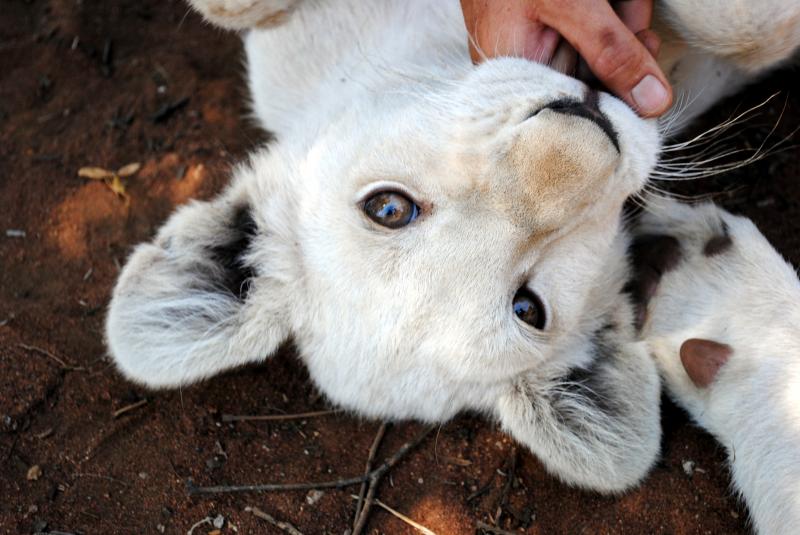
Since 2006, GoEco has offered affordable volunteer abroad programs and internships in over 40 countries throughout Africa, Asia, Australasia, Central America, Europe, the Middle East, and South America. With more than 150 different programs, including programs specifically for teens, GoEco is a great organization to check out if you’re looking for a variety of impactful trips to choose from, from wildlife conservation to teaching English. GoEco was recently recognized as the Top Volunteer Abroad Organization from GoAbroad, Top Eco-Enthusiast by Greenmatch, and has been recommended by Buzzfeed, Huffington Post, the United Nations Convention to Combat Desertification and more. As a volunteer, you will have 24-hour support from the GoEco team, from start to finish. Currently, GoEco is offering a special travel grant where you can stay for the 3rd week free! The featured programs below all qualify!
Immerse yourself living in the wilderness in the African bush to help protect African wildlife and conservation! This exciting project takes place in the Pardamat Conservation Area, part of the Greater Mara Ecosystem, which is famously known for the most wildlife on earth (especially big cats), and where you can see the magnificent annual wildebeest and zebra migrations. Your work will mainly help with wildlife monitoring and conservation. Monitoring includes data collection such as on lions, cheetahs, big cats, elephants sightings. Conservation efforts include measures to protect the ecosystem such as road repairs, de-fencing, soil erosion control, game drive routing, etc. During your daily tasks, you will get to know your Masaai guides and learn about their culture. Your accommodation will be basic but comfortable in the remote wilderness living in a tent amongst the wildlife and under the starry nights. In your free time, there will be many more exciting wildlife excursions! Check out more of this unique experience!
Another highly rated South African volunteer adventure is helping African animals in an accredited and ethical wildlife ranch located in Western Cape. This sanctuary houses 90 species of animals and reptiles, as well as a cheetah breeding program. You will get to see and interact with cheetahs, lions, white tigers, meerkats, and lemurs. Your tasks may include feeding animals, cleaning their cages and habitats, playing with them, and also maintaining the ranch. This program is recommended for those who are fit and healthy since it can be physically demanding.
When you are not working, you can opt for tours on the weekends such as elephant experiences, horseback safaris, ostrich farms, and the famous Cango Caves. For more details, click here!
You can also join one of GoEco’s best volunteer programs in a world renowned and successful wildlife sanctuary in Zimbabwe. You will work alongside professionals to care for injured wildlife (including the big 5 cats) that are abandoned, abused, or orphaned. They will also learn and be involved in nature conservation research, educating the public about conservation, and hands-on care for the animals.
Located 30 minutes from Bulawayo, a major city in Zimbabwe, there are many opportunities for adventures nearby such as Matopo National Park, known for leopards, the famous Victoria Falls, and many game parks nearby. This is a great program to experience for wildlife lovers! To get started, here is more information!
Gain experience in another world renowned wildlife rehabilitation center in South Africa. The wildlife that are rescued, cared for, and released include leopards and cheetahs, amongst other African wildlife that are brought in from all over South Africa. You will get to work with wildlife professionals to help care for injured animals, such as hand-nurturing cheetah cubs, or observe and assist with animals admitted to the rehab clinic. Other tasks may include maintaining their enclosures, the center’s upkeep, game capture and relocation, etc. For more details on this program, click here!
Founded in 1992, Projects Abroad has hosted more than 132,000 volunteers to date. With 209 projects across 20 destinations, Projects Abroad makes a real impact on communities and the environment. For instance, each year the organization supports the education of more than 14,000 children and removes nearly 30 tons of litter from the environment.
Projects Abroad does a lot of great wildlife conservation work too, including big cat conservation. If you want to be a big cat conservation volunteer, look no further than Projects Abroad. You feel your impact right away, all the while enjoying a hassle-free volunteering adventure. Projects Abroad handles everything on the ground, from airport pickup to lodging arrangements, enabling you to focus more on the trip.
Read about two big cat conservation volunteer abroad programs below!
Support wildlife in Kenya by working with savanna animals, notably the giraffe and the lion. You’ll live at a ranch house at the conservancy, putting you right in the heart of the majestic African savannah.
As a conservation volunteer, you’ll assist with:
- Researching the Rothschild Giraffe
- Setting up cameras to study animal behavior
- Maintaining vital waterholes
- Doing community outreach
Your work goes a long way in protecting endangered wildlife and preserving biodiversity for future generations.
Program fees start from $2,970 for 1 week; $4,380 for 4 weeks.
Interested? Apply here.
Journey to a remote area of the Southern African bushveld and join conservation initiatives to protect Africa’s Big 5. At the Wild at Tuli reserve, you’ll dig waterholes, join anti-poaching patrols, remove snares and more. The work truly is vital to protecting these majestic creatures.
This project in Wild at Tuli, home to the elephant, leopard, and lion, makes a real impact. Over 550 volunteers have joined the project since 2013, more than 120 of wire, and more than 400 snares have been removed. This has saved lots of local wildlife from the illegal hunting industry.
Program fees start from $3,220 for 1 week; $4,780 for 4 weeks.
Interested? Apply here.
African Impact is a responsible, sustainable volunteer travel organization that has won multiple industry awards, including being voted the world’s Top Volunteer Abroad Organization by volunteers on GoAbroad four years in a row. Since 2004, they have hosted over 35,000 participants on 20 projects across 7 countries. The organization believes in the spirit of Africa and that the volunteer experience is just as important as the impact made. It is also recognized as a trusted specialist on volunteering and interning in Southern Africa. African Impact offers internships, as well as group, family, and high school projects. The minimum age requirement for their projects is 16, making African Impact a great option for teen and high school volunteers.
African Impact manages its own projects and is able to provide tangible, real achievements on a regular basis. The organization has a clear Child Protection Policy and ensures that volunteers complete a criminal record check prior to involvement. Experienced staff is on the ground to support volunteers day-in-day-out and the organization does not use volunteer support in replacement for a local person.
In addition to making a positive impact, African Impact also believes that volunteering abroad should be enjoyable. The organization offers a range of activities for volunteers, including teaching children in South Africa, assisting with wildlife conservation in Zimbabwe, working in hospitals or clinics in Kenya, and carrying out dolphin and marine research in Zanzibar.
Volunteering with African Impact allows individuals to gain new skills, knowledge and practical work experience, while also making a lasting impact on local communities and conservation efforts. The organization believes that volunteering in Africa helps to change perceptions and stereotypes about Africa and its people, while providing local communities with an exchange of culture, mindsets and ideas.
The African Big 5 Wildlife Conservation project is a volunteer program in South Africa that offers participants the opportunity to work with expert field guides and research teams in the Greater Kruger Area, one of the world’s last remaining wildlife strongholds. The Greater Kruger Area encompasses over 20 private wildlife reserves on the west side of the Kruger National Park, and it is home to many of Africa’s iconic “Big 5” animals, including lions, elephants, rhinos, leopards, and buffalo.
Participants in this program will have the chance to collect information about these animals and to help protect them from threats such as poaching and habitat loss. They will also be able to track the movements and behaviors of herds of elephants and prides of lions, and to witness nocturnal animals in their natural habitat on unforgettable night drives.
During their time on the project, participants will live in a private volunteer lodge in the heart of the Greater Kruger Area. The lodge offers a safari-style camp experience, with amenities such as a swimming pool, viewing deck, WiFi, and hot showers. Participants will be able to relax and socialize in the outdoor area, and to enjoy the stunning views of the African bush.
This volunteer program is open to people of all skill levels and backgrounds, and it is suitable for anyone with an interest in wildlife, nature, or conservation. No prior experience is necessary, and participants will be able to choose from a range of start dates and duration options to suit their schedules and preferences. Once they have submitted their application, a Destination Specialist will be in touch to discuss the project and to answer any questions they may have.
To conserve animals and nature, you need to understand the intricate connections between these two. Join a research team on game reserves in South Africa’s Kruger area and monitor the elusive leopard, learning how to track and identify individual leopards and collecting information for a database.
During the day and night stake-outs, you’ll observe animals in the wild, monitoring leopard corridors, and learning the practical methods used in wild animal research. These include setting up camera traps, measuring tracks, heat mapping, and building identification databases.
Part of this research project incorporates data collected on wild dogs and hyenas to better understand group dynamics and behavior. Other activities include ongoing conservation initiatives like building waterholes, removing invasive plant species, and patrolling for snares. Some nights, you’ll camp out in the bush, eating around the fire, and stargazing at night.
Your accommodation is an African lodge on a private reserve in the Greater Kruger Area, a wildlife hotspot near the world-famous Kruger National Park. The program base is on 18 hectares of land, with a large swimming pool, and is a great place to relax with other volunteers, enjoy a game night, watch movies, and roast marshmallows around the fire.
On days off, you can explore the Blyde River Canyon or visit Swaziland. Program fees begin at $3,495 for four weeks. Click here to learn more and to register!
Join African Impact on a big cat conservation program in the Naboisho Conservancy, which borders the Maasai Mara National Reserve in Kenya. This is a great opportunity to volunteer with lions. This area has a wealth of wildlife and the largest density of lions in the country.
You’ll get to monitor wildlife each day and collect data for conservancy management. Do this by going out on drives to conduct bi-weekly game counts. Document sightings of big cats and contribute to the leopard database. Learn more about the Maasai culture as you work alongside experienced Maasai guides from the Koiyaki Guiding School.
Accommodation is in a volunteer house in the Kenyan Mara Naboisho Conservancy, which borders the world-famous Maasai Mara National Reserve. Animals on the reserve include lions, hyenas, wildebeest, and antelope. You’ll stay in an authentic, rustic safari camp with dorms or large tents. Meals are included. Enjoy movie nights, campfire nights, bush dinners, and board games with other volunteers.
Spend weekends and free time on safari, or even enjoy a hot air balloon ride. You can also spend a night (or two) in a luxury safari camp. Kenya’s Malindi Marine National Park has extensive and beautiful beaches and coral reefs. Go surfing, snorkeling, fishing, and diving. Program fees start from $2,311 for two weeks. Read more and sign up here!
Work alongside a team of researchers and enjoy a close encounter with captive lions on their daily walks when you join African Impact in Zimbabwe on the Hands-on Lion & Wildlife Conservation program. You’ll play a key role in one of the world’s largest conservation areas close to Victoria falls, one of the seven natural wonders of the world!
Your role is to assist researchers on the team, collecting baseline data on each species to improve the conservation management plan. You’ll track and collect data on the lion, spotted hyena, and other large predators through spoor transects, census physical sightings, and predator call-up surveys. Hands-on work with lions includes helping captive-bred lions become familiar with their environment through daily walks, and you’ll help in the feeding, cleaning, and enrichment of these big cat cubs.
In addition to working with lions in this groundbreaking and globally-recognized lion-release program, you’ll have a chance to track and monitor large predators, including the hyena and leopard in the Zambezi National Park. Another aspect of this conservation project is outreach, where you’ll help with educational initiatives in the community. This includes teaching children living on the borders of national parks about the importance of wildlife and environmental sustainability.
You also may spend time on African Impact’s elephant research project, helping to build a database of each individual animal based upon identification of their ear notches, tusk size, and shape. Park conservation activities that you may help with include invasive plant species removal, waterhole and fire management, anti-poaching cavities, and litter picks.
Stay at the private Tokki Lodge with other volunteers and staff, and enjoy the pool, outdoor living space, fire pit, and barbecue area. Wifi is available for about $1 per day. Victoria Falls is a great location for your gap year or internship as well, giving you a chance to learn about indigenous people, culture, and tradition. The national parks are some of the best in Africa, and you’ll see many animals on your safari there. The Zambezi River is home to crocodiles and hippos, and elephants drink from its banks. Adventures you can have there include bungee jumping, white-water rafting, and river cruises. Program fees start from $2,111 for two weeks. Learn more here!
Volunteering Solutions began in 2007 and has hosted more than 17,000 volunteers to date. With 150+ projects across 27 countries, Volunteering Solutions has a variety of programs, including wildlife and big cat conservation programs.
Known for affordable, high-quality and impactful service projects. Volunteering Solutions’ big cat conservation initiatives are a great opportunity to make an impact while building your skills and resume. Whether you’re an animal lover or aspiring conservationist or veterinarian, Volunteering Solutions’ programs are a great choice.
To learn more about Volunteering Solutions and apply to their program, visit their website here. UK readers can visit the UK site here. Check out the three great programs below to get started. Aftering booking a trip, consider obtaining insurance through Volunteering Solutions (it’s only $12 per week)!
Ethically experience African wildlife and make efforts for their preservation in this amazing project. As a wildlife volunteer, you’ll work in a wildlife preserve outside mainland Port Elizabeth. Duties include lion tracking and monitoring, anti-poaching tasks, tree planting and landscaping and more. All this work and research helps protect local wildlife, including lions, elephants, rhinos, buffalo and more.
Program fees begin at $690 for 1 week ($2100 for 4 weeks). Learn more here!
Make your way to Costa Rica, where you’ll work with a team of experts to protect and rehabilitate wildlife. Duties include guiding visitors, cleaning facilities, clearing pathways, and helping care for the animals. The focus is on caring for sloths, monkeys, birds, and reptiles, as well as some local wild cats such as ocelots, pumas and little spotted cats.
Program fees begin at $1106 for 4 weeks. Learn more here!
Head to the Amazon, and help in the fight against the trafficking, abuse, capture, and hunting of wild animals. As a conservation volunteer, you’ll directly help wild cats such as ocelots, as well as other local animals such as parrots, monkeys, capybaras, and tortoises. Duties include assisting the vet, preparing food, cleaning enclosures, educating locals about conservation practices, and more.
Program fees begin at $749 for 2 weeks ($1149 for 4 weeks). Learn more here!
Global Vision International began in 1997 with the goal of advancing the United Nations’ Sustainable Development Goals. To date, they’ve placed more than 25,000 volunteers for projects around the world. If you want to contribute to the sustainable development of communities and conservation of the environment, joining one of GVI’s initiatives can enable you to do that.
Surrounded by wildlife and raw nature, this amazing program takes place in a private game reserve in Limpopo, South Africa. The research center is in a 20 thousand acres of savannah and home to the Big 5 (African elephant, lion, leopard, Cape buffalo, and rhinoceros), as well as hyenas, and cheetahs. On a daily basis, you will see wildlife roaming in and out of your stay in the farmhouse. You will be trained to track and collect data on predators during daily research drives, and also participate in environmental conservation programs. You can participate for 1 to 12 weeks. Get ready to see the Big 5 here!
Travel to the jungles of Costa Rica’s Kekoldi Indigenous Reserve to help with wild cat research. You will see the native cats such as ocelot, margay, and jaguarundi. You may even get to see the rare jaguar and puma! This program focuses on monitoring the wild cat population on the reserve, specifically helping with setting camera traps, surveying habitats, and collecting data on behavior and territoriality. Many of them are endangered so the research will help with conservation strategies. You will work and live in the jungle alongside the staff, and will see many native wildlife on your patrols. Get ready for this adventure!
Here is another chance to join a team of international wildlife experts to help big cat research in South Africa! You will learn a great deal about these cats (lions, cheetah and leopards), as well as gain wildlife research skills through data collection in the savannah. This research will help to ensure their conservation. The days will be long as you will spend most of your time outside under the sun. You will also have the opportunity to live in a farmhouse inside the savannah, which is not open to tourists, alongside GVI staff, field guides, and other participants. For more information, check out their page!
Frontier provides volunteering opportunities, gap year placements, and inspirational adventures in 60 countries worldwide. Founded in 1989 as nonprofit conservation and development NGO, Frontier offers more than 400 capacity-building programs that combine community development, ecosystem protection, and economic growth, with an emphasis on conserving endangered wildlife and building livelihoods for under-resourced communities. Frontier gives you the ability to make a positive impact as you travel the world.
Travel to one of the most ecologically diverse places on Earth and contribute to a conservation program in Costa Rica’s Osa Peninsula. Walk out of camp each morning and embark on a different adventure, checking on sea turtle nests one day, conducting primate surveys the next day, and then recording puma and jaguar sightings.
When you work on the Big Cats, Primates & Turtle Conservation program, you’ll gain practical experience in research and conservation, and study the ecology and behavior of species including jaguars, sloths, tapirs, and Olive Ridley and Pacific Green turtles. Primates in the region are the squirrel monkey, mantled howler monkey, Geoffroy’s spider monkey, and the white-faced capuchin monkey.
The Osa Peninsula is home to five cat species: the jaguar and puma, the smaller jaguarondi and margay, and the intermediate-sized ocelot. Another facet of research is on the neotropical river otter, which is an elusive and critically endangered animal. The research camp is situated in the dense tropical forest on the edge of Corcovado National Park where you’ll carry out biodiversity surveys, which could include:
- Walking primate transects to collect valuable data on various primate species in the park
- Patrolling beaches to assess and survey turtle nesting habits and hatchling health
- Surveying big cat tracks and collecting data
- Participating in surveys of exotic bird populations, invertebrates, and other animal groups on the peninsula
- Helping with jungle trail creation and maintenance
You’ll arrive at Puerto Jiménez Airport (PJM) and be met by Frontier staff, who will escort you by local bus to the project camp. The jungle research camp is simple, and accommodation is in open-air, shared, mixed-sex eco-cabins in the jungle near Carate. Conditions at Camposita are basic and environmentally-friendly, so mosquito netting is a must. There are showers and toilets. Meals are included, and cooking is carried out communally on a rotational basis. You’ll learn how to cook local dishes, which are mainly vegetarian.
Free time can be spent swimming in the ocean, swinging in the hammock with a good book, horse riding, forest canopy tours, dolphin and whale watching tours, and guided trips to the national park. This program starts from $895 for one week. Click here to learn more and to register!
Malaysia has the second-highest tiger population in the world after India, and you can help protect this classic animal and its habitat when you volunteer on the Tiger Conservation program with Frontier. Travel to the jungle and patrol the wildlife corridor between the Taman Negara National Park and the main mountain range in West Malaysia, and be a deterrent to poaching. The wildlife trail also is used by elephants, rhinos, leopards, and sun bears.
This project gives you hands-on experience tracking wild animals as part of a team. You’ll trek through the jungle to collect data on the range and movement of the tiger, finding and identifying animals tracks and other signs of animal crossing. The team also organizes and runs anti-poaching patrols, where you’ll look for snares, record their location with a GPS, and destroy these animal traps. Your guide will teach you how to use camera traps to monitor animals that are in the area, and point out signs of animals as well as interesting flora and fauna on the walks.
You’ll need to be fit and healthy enough for jungle walks, as well as exploring the limestone caves. There are 60 caves in the Merapoh region, and many have been occupied by humans. Some have waterfalls or underground rivers, and even a variety of nocturnal wildlife.
Another component of this program is teaching conversational English to the people of the Batek village, focusing on environmental topics and your explorations. Share your culture and history, helping them learn about you and your interests as they develop a small tourism industry.
Fly into Kuala Lumpur Airport (KUL) and make your way to Merapoh, where you’ll be met by the staff for orientation and training. In-country support is available 24/7. You’ll stay in a dormitory-style volunteer house in same-gender rooms. You’ll have continental breakfast and packed lunch, and enjoy dinner out using a food allowance. Shops are walking distance of the house.
Spend your free time exploring Merapoh, or relaxing after the long days on the Tiger Trail. When your project is completed, explore Kuala Lumpur using a bus tour around the city, or take cooking lessons. Enjoy the canopy skywalk at the nearby national park, or take an eco-bike tour through Melaka. Fees for this program start at $795 for one week. Learn more here.
Join the Carnivore Conservation program in Namibia and help Frontier and its partners on a sustainable conservation plan that saves cheetahs, leopards, and hyenas. Namibia is home to one-third of the cheetah population, and it is an endangered species in this country. As well, the leopard’s range has decreased in the past years because of habitat loss and hunting. These important animals are threatened because their habitat has become farmland, and they prey on the farmers’ livestock.
You will spend the first week of your placement helping Frontier’s partners develop a sustainable conservation plan that avoids human-animal conflict. Work with biologists to monitor and track these two big cats, providing scientific research into their behavior. You’ll take part in animal counts, tracking and identifying carnivore spoors, and locating trees where cheetahs leave marks. Assist with setting and checking box traps and capture of the animals, then help transport them to a remote wildlife release site. Then you’ll learn how to locate and process the telemetry tracking data of collared cheetahs and leopards.
The remainder of your placement will be spent at the wildlife sanctuary, supporting the staff with their daily tasks, including feeding and general care of lions, leopards, cheetahs, wild dogs, caracals, meerkats, and sometimes orphaned baby baboons.
Fly into Hosea Kutako International Airport in Windhoek (WDH), and a team member will meet you then transport you to the sanctuary for your project introduction. You’ll sleep in a large safari tent with a living room and a shared bedroom area. Electricity and solar-heated showers are available, and all meals are included. Program fees start at $2,745 for three weeks.
While you’re in Namibia, enjoy some of the unique activities this country has to offer, such as dune surfing in the Namib Desert, visiting the Kolmanskopp ghost town, or traveling to Cape Cross to see the vast seal colony that lives there. Learn more and apply here!
Big Cats Rule!
Big cats rule their territory as the alpha predator, but they’re important to the planet for another reason. As carnivores, big cats love meat, and this has an impact on plant populations. Because lions, leopards, tigers, and cheetahs hunt the herbivores in their habitat, and they spread seeds in their scat, they create what’s called a “trophic cascade” – an interaction that can control entire ecosystems. When an ecosystem loses its apex predators, and when an important species disappears, the system loses balance and the entire region can suffer. Big cats rule for a reason and with your help, they can stay at the top.













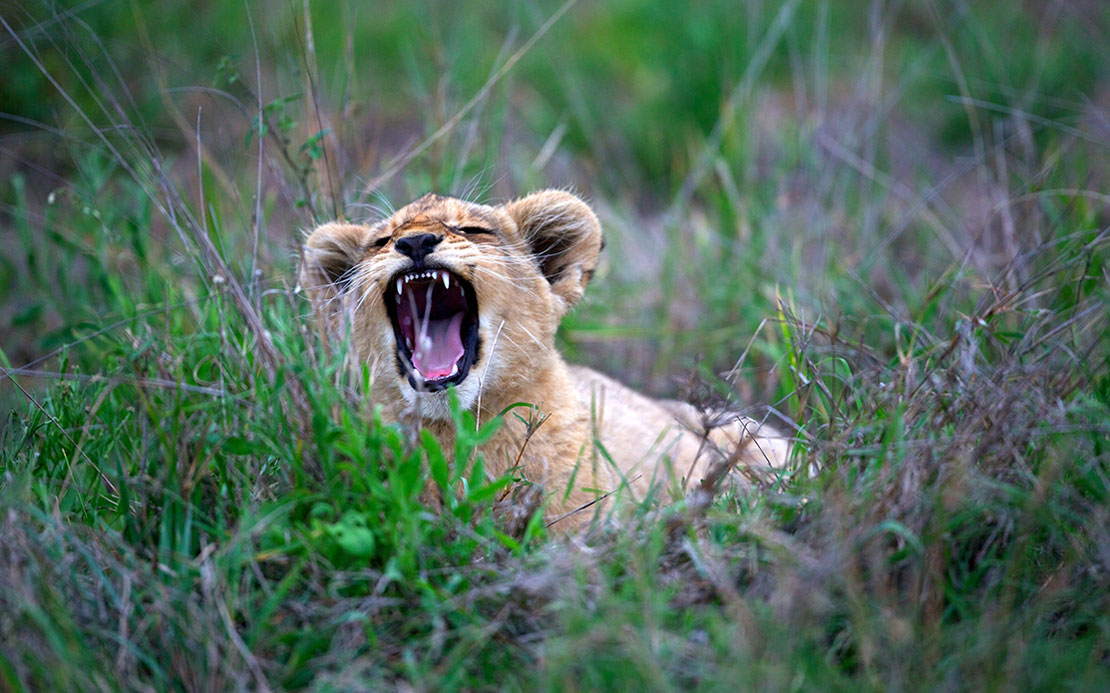

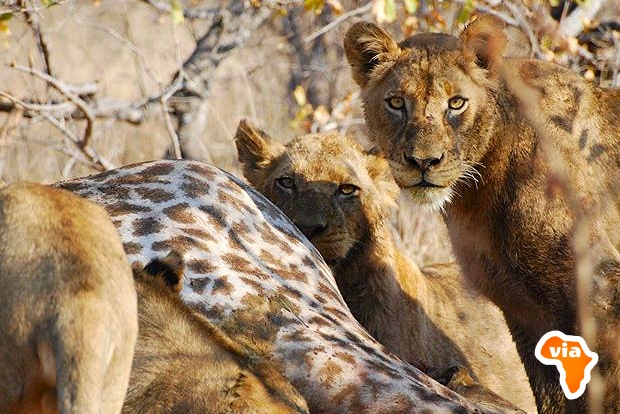

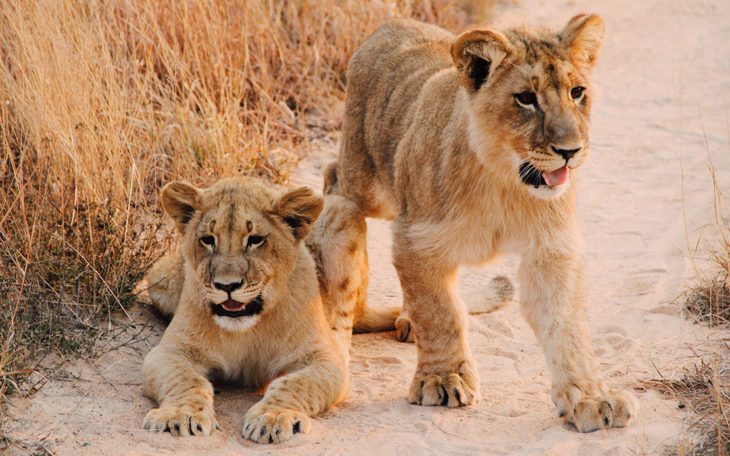
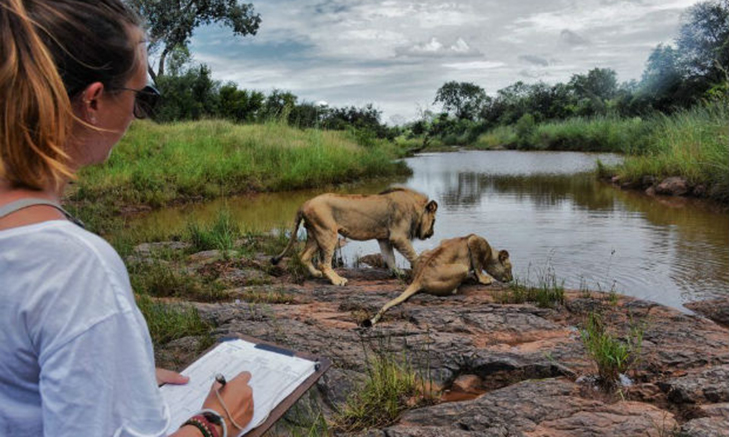

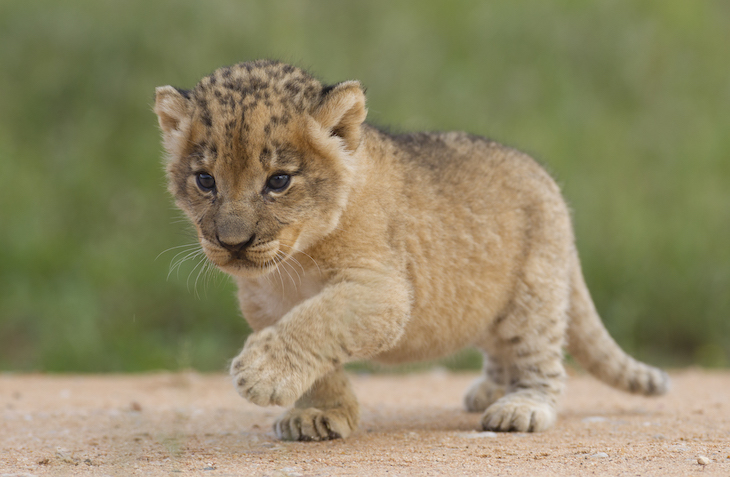

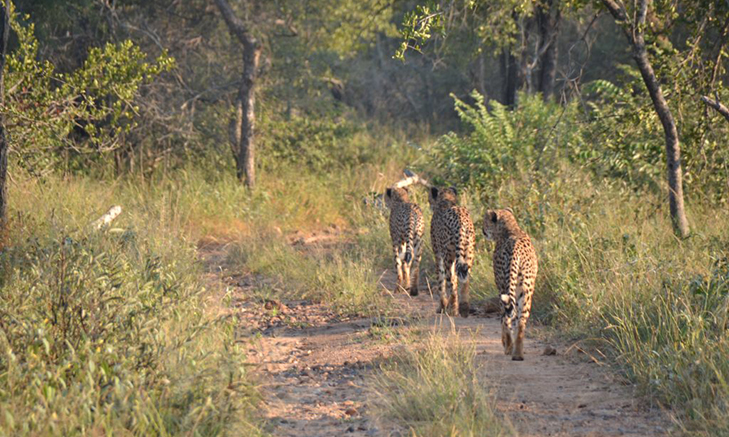
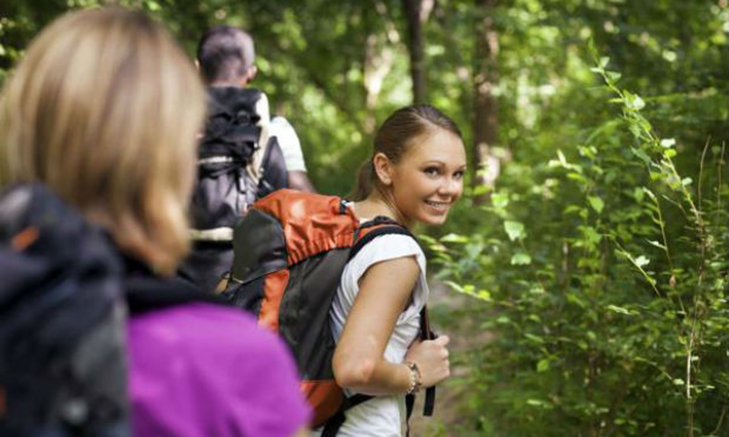
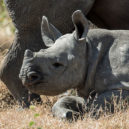









Robin Van Auken · Writer
Robin is a researcher, writer, and a registered professional archaeologist, a skillset she uses every day as a cultural communication specialist with Hands-on Heritage. Her projects connect communities with an emphasis on interpretation and education and conserve cultural and environmental legacies.